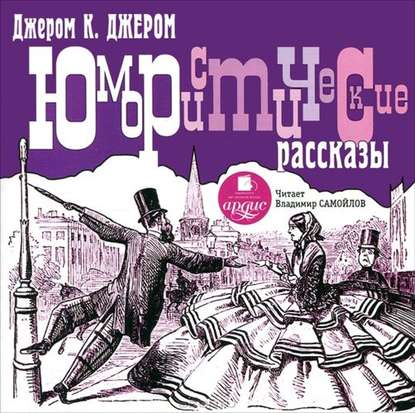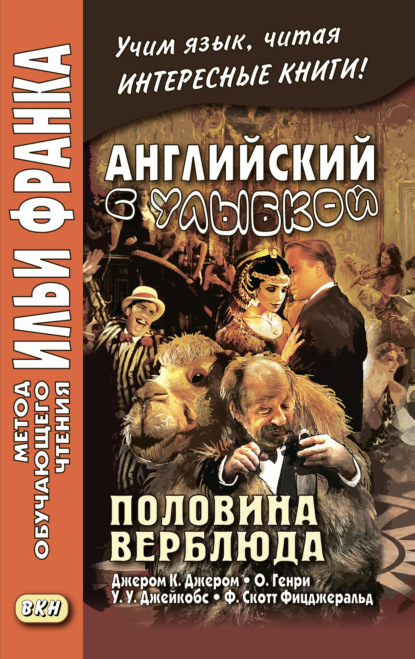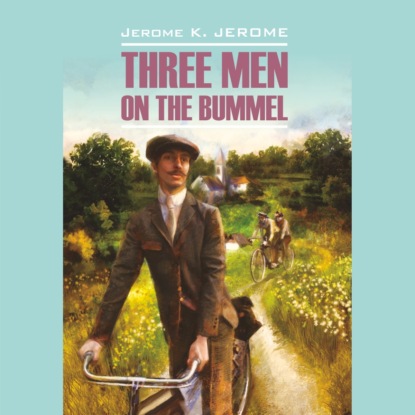 Полная версия
Полная версияПолная версия:
Джером Клапка Джером The Love of Ulrich Nebendahl
- + Увеличить шрифт
- - Уменьшить шрифт

Jerome K. Jerome
The Love of Ulrich Nebendahl
THE LOVE OF ULRICH NEBENDAHL
Perhaps of all, it troubled most the Herr Pfarrer. Was he not the father of the village? And as such did it not fall to him to see his children marry well and suitably? marry in any case. It was the duty of every worthy citizen to keep alive throughout the ages the sacred hearth fire, to rear up sturdy lads and honest lassies that would serve God, and the Fatherland. A true son of Saxon soil was the Herr Pastor Winckelmann – kindly, simple, sentimental.
"Why, at your age, Ulrich – at your age," repeated the Herr Pastor, setting down his beer and wiping with the back of his hand his large uneven lips, "I was the father of a family – two boys and a girl. You never saw her, Ulrich; so sweet, so good. We called her Maria." The Herr Pfarrer sighed and hid his broad red face behind the raised cover of his pewter pot.
"They must be good fun in a house, the little ones," commented Ulrich, gazing upward with his dreamy eyes at the wreath of smoke ascending from his long-stemmed pipe. "The little ones, always my heart goes out to them."
"Take to yourself a wife," urged the Herr Pfarrer. "It is your duty. The good God has given to you ample means. It is not right that you should lead this lonely life. Bachelors make old maids; things of no use."
"That is so," Ulrich agreed. "I have often said the same unto myself. It would be pleasant to feel one was not working merely for oneself."
"Elsa, now," went on the Herr Pfarrer, "she is a good child, pious and economical. The price of such is above rubies."
Ulrich's face lightened with a pleasant smile. "Aye, Elsa is a good girl," he answered. "Her little hands – have you ever noticed them, Herr Pastor – so soft and dimpled."
The Pfarrer pushed aside his empty pot and leaned his elbows on the table.
"I think – I do not think – she would say no. Her mother, I have reason to believe – Let me sound them – discreetly." The old pastor's red face glowed redder, yet with pleasurable anticipation; he was a born matchmaker.
But Ulrich the wheelwright shuffled in his chair uneasily.
"A little longer," he pleaded. "Let me think it over. A man should not marry without first being sure he loves. Things might happen. It would not be fair to the maiden."
The Herr Pfarrer stretched his hand across the table and laid it upon Ulrich's arm.
"It is Hedwig; twice you walked home with her last week."
"It is a lonesome way for a timid maiden; and there is the stream to cross," explained the wheelwright.
For a moment the Herr Pastor's face had clouded, but now it cleared again.
"Well, well, why not? Elsa would have been better in some respects, but Hedwig – ah, yes, she, too, is a good girl a little wild perhaps – it will wear off. Have you spoken with her?"
"Not yet."
"But you will?"
Again there fell that troubled look into those dreamy eyes. This time it was Ulrich who, laying aside his pipe, rested his great arms upon the wooden table.
"Now, how does a man know when he is in love?" asked Ulrich of the Pastor who, having been married twice, should surely be experienced upon the point. "How should he be sure that it is this woman and no other to whom his heart has gone out?"
A commonplace-looking man was the Herr Pastor, short and fat and bald. But there had been other days, and these had left to him a voice that still was young; and the evening twilight screening the seared face, Ulrich heard but the pastor's voice, which was the voice of a boy.
"She will be dearer to you than yourself. Thinking of her, all else will be as nothing. For her you would lay down your life."
They sat in silence for a while; for the fat little Herr Pfarrer was dreaming of the past; and long, lanky Ulrich Nebendahl, the wheelwright, of the future.
That evening, as chance would have it, Ulrich returning to his homestead – a rambling mill beside the river, where he dwelt alone with ancient Anna – met Elsa of the dimpled hands upon the bridge that spans the murmuring Muhlde, and talked a while with her, and said good-night.
How sweet it had been to watch her ox-like eyes shyly seeking his, to press her dimpled hand and feel his own great strength. Surely he loved her better than he did himself. There could be no doubt of it. He pictured her in trouble, in danger from the savage soldiery that came and went like evil shadows through these pleasant Saxon valleys, leaving death and misery behind them: burnt homesteads; wild-eyed women, hiding their faces from the light. Would he not for her sake give his life?
So it was made clear to him that little Elsa was his love.
Until next morning, when, raising his eyes from the whirling saw, there stood before him Margot, laughing. Margot, mischief-loving, wayward, that would ever be to him the baby he had played with, nursed, and comforted. Margot weary! Had he not a thousand times carried her sleeping in his arms. Margot in danger! At the mere thought his face flushed an angry scarlet.
All that afternoon Ulrich communed with himself, tried to understand himself, and could not. For Elsa and Margot and Hedwig were not the only ones by a long way. What girl in the village did he not love, if it came to that: Liesel, who worked so hard and lived so poorly, bullied by her cross-grained granddam. Susanna, plain and a little crotchety, who had never had a sweetheart to coax the thin lips into smiles. The little ones – for so they seemed to long, lanky Ulrich, with their pleasant ways – Ulrich smiled as he thought of them – how should a man love one more than another?
The Herr Pfarrer shook his head and sighed.
"That is not love. Gott in Himmel! think what it would lead to? The good God never would have arranged things so. You love one; she is the only woman in the world for you."
"But you, yourself, Herr Pastor, you have twice been married," suggested the puzzled wheelwright.
"But one at a time, Ulrich – one at a time. That is a very different thing."
Why should it not come to him, alone among men? Surely it was a beautiful thing, this love; a thing worthy of a man, without which a man was but a useless devourer of food, cumbering the earth.
So Ulrich pondered, pausing from his work one drowsy summer's afternoon, listening to the low song of the waters. How well he knew the winding Muhlde's merry voice. He had worked beside it, played beside it all his life. Often he would sit and talk to it as to an old friend, reading answers in its changing tones.
Trudchen, seeing him idle, pushed her cold nose into his hand. Trudchen just now was feeling clever and important. Was she not the mother of the five most wonderful puppies in all Saxony? They swarmed about his legs, pressing him with their little foolish heads. Ulrich stooped and picked up one in each big hand. But this causing jealousy and heartburning, laughing, he lay down upon a log. Then the whole five stormed over him, biting his hair, trampling with their clumsy paws upon his face; till suddenly they raced off in a body to attack a floating feather. Ulrich sat up and watched them, the little rogues, the little foolish, helpless things, that called for so much care. A mother thrush twittered above his head. Ulrich rose and creeping on tiptoe, peeped into the nest. But the mother bird, casting one glance towards him, went on with her work. Whoever was afraid of Ulrich the wheelwright! The tiny murmuring insects buzzed to and fro about his feet. An old man, passing to his evening rest, gave him "good-day." A zephyr whispered something to the leaves, at which they laughed, then passed upon his way. Here and there a shadow crept out from its hiding-place.
"If only I could marry the whole village!" laughed Ulrich to himself.
But that, of course, is nonsense!
The spring that followed let loose the dogs of war again upon the blood-stained land, for now all Germany, taught late by common suffering forgetfulness of local rivalries, was rushing together in a mighty wave that would sweep French feet for ever from their hold on German soil. Ulrich, for whom the love of woman seemed not, would at least be the lover of his country. He, too, would march among those brave stern hearts that, stealing like a thousand rivulets from every German valley, were flowing north and west to join the Prussian eagles.
But even love of country seemed denied to Ulrich of the dreamy eyes. His wheelwright's business had called him to a town far off. He had been walking all the day. Towards evening, passing the outskirts of a wood, a feeble cry for help, sounding from the shadows, fell upon his ear. Ulrich paused, and again from the sombre wood crept that weary cry of pain. Ulrich ran and came at last to where, among the wild flowers and the grass, lay prone five human figures. Two of them were of the German Landwehr, the other three Frenchmen in the hated uniform of Napoleon's famous scouts. It had been some unimportant "affair of outposts," one of those common incidents of warfare that are never recorded – never remembered save here and there by some sad face unnoticed in the crowd. Four of the men were dead; one, a Frenchman was still alive, though bleeding copiously from a deep wound in the chest that with a handful of dank grass he was trying to staunch.
Ulrich raised him in his arms. The man spoke no German, and Ulrich knew but his mother tongue; but when the man, turning towards the neighbouring village with a look of terror in his half-glazed eyes, pleaded with his hands, Ulrich understood, and lifting him gently carried him further into the wood.
He found a small deserted shelter that had been made by charcoal-burners, and there on a bed of grass and leaves Ulrich laid him; and there for a week all but a day Ulrich tended him and nursed him back to life, coming and going stealthily like a thief in the darkness. Then Ulrich, who had thought his one desire in life to be to kill all Frenchmen, put food and drink into the Frenchman's knapsack and guided him half through the night and took his hand; and so they parted.
Ulrich did not return to Alt Waldnitz, that lies hidden in the forest beside the murmuring Muhlde. They would think he had gone to the war; he would let them think so. He was too great a coward to go back to them and tell them that he no longer wanted to fight; that the sound of the drum brought to him only the thought of trampled grass where dead men lay with curses in their eyes.
So, with head bowed down in shame, to and fro about the moaning land, Ulrich of the dreamy eyes came and went, guiding his solitary footsteps by the sounds of sorrow, driving away the things of evil where they crawled among the wounded, making his way swiftly to the side of pain, heedless of the uniform.
Thus one day he found himself by chance near again to forest-girdled Waldnitz. He would push his way across the hills, wander through its quiet ways in the moonlight while the good folks all lay sleeping. His foot-steps quickened as he drew nearer. Where the trees broke he would be able to look down upon it, see every roof he knew so well – the church, the mill, the winding Muhlde – the green, worn grey with dancing feet, where, when the hateful war was over, would be heard again the Saxon folk-songs.
Another was there, where the forest halts on the brow of the hill – a figure kneeling on the ground with his face towards the village. Ulrich stole closer. It was the Herr Pfarrer, praying volubly but inaudibly. He scrambled to his feet as Ulrich touched him, and his first astonishment over, poured forth his tale of woe.
There had been trouble since Ulrich's departure. A French corps of observation had been camped upon the hill, and twice within the month had a French soldier been found murdered in the woods. Heavy had been the penalties exacted from the village, and terrible had been the Colonel's threats of vengeance. Now, for a third time, a soldier stabbed in the back had been borne into camp by his raging comrades, and this very afternoon the Colonel had sworn that if the murderer were not handed over to him within an hour from dawn, when the camp was to break up, he would before marching burn the village to the ground. The Herr Pfarrer was on his way back from the camp where he had been to plead for mercy, but it had been in vain.
"Such are foul deeds!" said Ulrich.
"The people are mad with hatred of the French," answered the Herr Pastor. "It may be one, it may be a dozen who have taken vengeance into their own hands. May God forgive them."
"They will not come forward – not to save the village?"
"Can you expect it of them! There is no hope for us; the village will burn as a hundred others have burned."
Aye, that was true; Ulrich had seen their blackened ruins; the old sitting with white faces among the wreckage of their homes, the little children wailing round their knees, the tiny broods burned in their nests. He had picked their corpses from beneath the charred trunks of the dead elms.
The Herr Pfarrer had gone forward on his melancholy mission to prepare the people for their doom.
Ulrich stood alone, looking down upon Alt Waldnitz bathed in moonlight. And there came to him the words of the old pastor: "She will be dearer to you than yourself. For her you would lay down your life." And Ulrich knew that his love was the village of Alt Waldnitz, where dwelt his people, the old and wrinkled, the laughing "little ones," where dwelt the helpless dumb things with their deep pathetic eyes, where the bees hummed drowsily, and the thousand tiny creatures of the day.
They hanged him high upon a withered elm, with his face towards Alt Waldnitz, that all the village, old and young, might see; and then to the beat of drum and scream of fife they marched away; and forest-hidden Waldnitz gathered up once more its many threads of quiet life and wove them into homely pattern.
They talked and argued many a time, and some there were who praised and some who blamed. But the Herr Pfarrer could not understand.
Until years later a dying man unburdened his soul so that the truth became known.
Then they raised Ulrich's coffin reverently, and the young men carried it into the village and laid it in the churchyard that it might always be among them. They reared above him what in their eyes was a grand monument, and carved upon it:
"Greater love hath no man than this."







